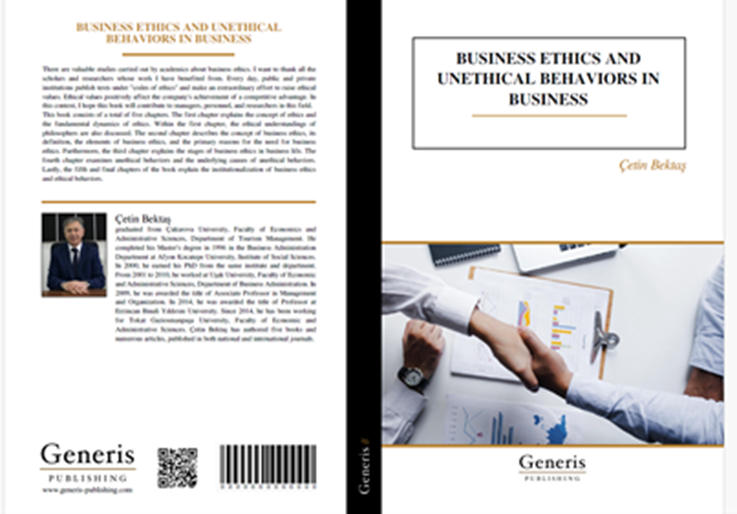Behavioral Economics in The Era of Digital Subscriptions: Choice or Manipulation
Keywords:
Behavioral Economics, Digitalization, Digital Subscriptions, ManipulationAbstract
The current research paper explores the relationship between behavioral economics and the practices used in the current economic environment in which a large part of consumption is done through digital subscriptions, identifying whether they represent genuine consumers’ choice or can be considered a form of manipulation. In the current context of accelerated digitalization, subscriptions for services such as streaming platforms, software applications, and educational portals, have become ubiquitous, determined and supported by sophisticated marketing strategies and data-based algorithms. At the same time, the study highlights how the design based on choice architecture and the use of AI do both contribute to the personalization of the user experience and the exploitation of cognitive vulnerabilitites. Based on a bibliometric analysis, the research identifies the connections between consumers behaviour and business models based on digital subscriptions. The study highlights the importance of personalized offers and choice architecture in influencing consumer decisions, often to teir detriment. At the same time, the paper exploers the possibility of non-ethical practices of digital subscription based business models in manipulating consumers’ choices and behavior. The results can sustain that the economic succes of business models based on digital subscriptions depends strongly on the equilibrium between satisfying consumer needs and generating a stable profit for supplers. Hence, the research contributes to the scientific literature by providing an understanding of how digitalization is transforming consumers’ choices and offers insights into the responsability of those business models to always call for good practices.
References
Alexiadis, P., and De Streel, A. (2020). Designing an EU Intervention Standard for Digital Platforms. Available at SSRN 3544694.
Castellini, J., Fletcher, A., Ormosi, P. L., and Savani, R. (2023). Recommender Systems and Competition on Subscription-Based Platforms. Available at SSRN 4428125.
Chen, C. Q. (2024). Literature Review and Theoretic Critique to the Research of Subscription Sales. Available at SSRN 5005389.
George, A. S. (2024). Unsubscribe From Anxiety: The Psychological Costs of Subscription Service Overload. Partners Universal International Innovation Journal, 2(3), 115-131.
Gonçalves, A. R., Pinto, D. C., Shuqair, S., Dalmoro, M. and Mattila, A. S. (2024). Artificial Intelligence vs. Autonomous Decision-Making in Streaming Platforms: A Mixed-Method Approach. International Journal of Information Management, 76: 102748.
Helberger, N., Sax, M., Strycharz, J., and Micklitz, H. W. (2022). Choice Architectures in the Digital Economy: Towards a New Understanding of Digital Vulnerability. Journal of Consumer Policy, 45(2), 175-200.
Kim, Y., and Kim, B. (2020). Selection Attributes of Innovative Digital Platform-Based Subscription Services: A Case of South Korea. Journal of Open Innovation: Technology, Market, and Complexity, 6(3): 70.
Klopčič, A. L., Hojnik, J., Bojnec, Š., and Papler, D. (2020). Global Transition to the Subscription Economy: Literature Review on Business Model Changes in the Media Landscape. Managing Global Transitions, 18(4), 323-348.
Kozyreva, A., Lewandowsky, S., and Hertwig, R. (2020). Citizens Versus the Internet: Confronting Digital Challenges With Cognitive Tools. Psychological Science in the Public Interest, 21(3), 103-156.
Latzer, M., Hollnbuchner, K., Just, N., and Saurwein, F. (2016). The Economics of Algorithmic Selection on the Internet. In Handbook on the Economics of the Internet, 395-425.
Lindström, C. W. J., Maleki Vishkaei, B., and De Giovanni, P. (2024). Subscription-Based Business Models in the Context of Tech Firms: Theory and Applications. International Journal of Industrial Engineering and Operations Management, 6(3), 256-274.
Maathuis, C., and Chockalingam, S. (2023). Modelling Responsible Digital Security Behaviour for Countering Social Media Manipulation. Indian Institute for Energy Technology. DOI: 10.34190/ecsm.10.1.1079.
McDonald, S., and Concha, R. (2024). Designing Regulations to Combat Online Manipulation: A UK Perspective. Journal of Antitrust Enforcement, 12(2), 207-212.
Nadler, A., and McGuigan, L. (2018). An Impulse to Exploit: the Behavioral Turn in Data-Driven Marketing. Critical Studies in Media Communication, 35(2), 151-165.
Ng, K. C., Tang, J., and Lee, D. (2021). The Effect of Platform Intervention Policies on Fake News Dissemination and Survival: An Empirical Examination. Journal of Management Information Systems, 38(4), 898-930.
Reyna, A. (2018). The Psychology of Privacy—What Can Behavioural Economics Contribute to Competition in Digital Markets?. International Data Privacy Law, 8(3), 240-252.
Schlicher, L., Dietzenbacher, B., and Musegaas, M. (2024). Stable Streaming Platforms: A Cooperative Game Approach. Omega. Availabe at https://doi.org/10.1016/j.omega.2023.103020.
Schneider, R., and Imai, J. (2020). User-Based Valuation of Digital Subscription Business Models. International Journal of Real Options and Strategy, 8, 1-26.
Wu, C. H., Chamnisampan, N., and Liao, Y. T. (2024). Perpetual Or Subscription: Incumbent Sales Strategy With Strategic Consumers and Social Learning. Procedia Computer Science, 234, 691-698.
Downloads
Published
How to Cite
Issue
Section
License
Copyright (c) 2024 Journal of Academic Opinion

This work is licensed under a Creative Commons Attribution 4.0 International License.





